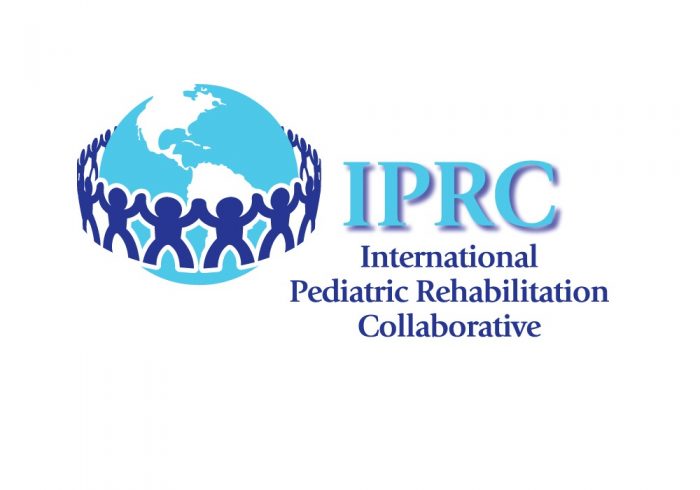Cindi Hobbes
Reminder for IPRC Webinar: Understanding and Treating Pediatric Vision Impairments on January 16, 2025
Thursday, January 16, 2025
1:00 pm – 2:00 pm EST; 12:00 pm – 1:00 pm CST;
11:00 am – 12:00 pm MST; 10:00 am – 11:00 am PST
Register Here
Samantha Bohl, OD
Presenter Bio:
Dr. Bohl earned her Doctor of Optometry degree from the University of the Incarnate Word Rosenberg School of Optometry in San Antonio, Texas, and completed a residency in neuro-optometric rehabilitation through the State University of New York College of Optometry. Dr. Bohl joined the team at Madonna Rehabilitation Hospital in 2017, where she supports individuals with vision impairments in the rehabilitation setting.
Objectives: At the end of this session, the learner will:
- Review the visual system and areas of the brain used for vision;
- Identify common visual issues found in the pediatric population; and
- Describe several treatments for pediatric vision deficits, including vision therapy.
Audience: This webinar is intended for all interested members of the rehabilitation team.
Level: Beginner
Certificate of Attendance: Certificates of attendance are available for all attendees. No CEs are provided for this course.
Complimentary webinars are a benefit of membership in IPRC/RCPA. Registration fee for non-members is $179. Not a member yet? Consider joining today.
Notice for Black History Month Planning
February is just around the corner, so it’s time to start planning your organization’s Black History Month celebrations! Black History Month at work is a great opportunity to foster inclusivity, celebrate diversity, and recognize the contributions of Black individuals to history, culture, and society.
To create a thoughtful and engaging program that educates, inspires, and honors the achievements of the Black community, involve employees in the planning process to ensure that the event feels meaningful and authentic.
Here are some ideas you may wish to include as you celebrate Black History Month at work:
- Sponsor Learning: Offer funded scholarships for team members interested in learning more about Black History. Have applicants submit an event, budget, and rationale for requested events (examples: attend a play, concert, poetry reading, or documentary).
- Volunteer: Volunteer with Black-led charities or non-profit organizations as a team. Provide paid time off or complete during scheduled work hours if possible.
- Support Black-owned businesses: Buy lunch from a Black-owned restaurant or purchase items for the office from a Black-owned business. Promote economic empowerment.
- Donate to anti-racism charities: Choose an anti-racism charity to donate to as a team. Clearly communicate the choice and why.
- Host a speaker series: Invite a speaker to discuss Black history and culture, or a social justice activist to discuss racial justice. Feature a speaker who can share stories/experiences that center around Black identity and/or how to promote diversity.
- Host a Black author book club: Create a book club focused on Black authors and their works.
- Host a film screening: Screen documentaries or movies to learn about Black History.
- Black History Trivia: Host a Black History trivia event. Help your team learn more about Black history in a fun, exciting way.
OMAP Pediatric Shift Care Stakeholder Update
The Pennsylvania Office of Medical Assistance Programs (OMAP) Pediatric Shift Care Team held a Stakeholder Update Call on December 16, 2024. The presentation provided an overview of the Pediatric Shift Care Initiative Updates, implementation of the Pediatric Complex Care Resource Centers, and online training curriculum as well as content development.
Please send any questions electronically to the Pediatric Shift Care Team.
Pediatric POTS and Related Disorders — IPRC Webinar on Feb. 7
Friday, February 7, 2025
1:00 pm – 2:00 pm EST; 12:00 pm – 1:00 pm CST;
11:00 am – 12:00 pm MST; 10:00 am – 11:00 am PST
Register Here
Christina Kokorelis, MD
Presenter Bio:
Christina Kokorelis, MD, is a rehabilitation physician specializing in pediatric and adult postural orthostatic tachycardia syndrome (POTS), orthostatic intolerance, and musculoskeletal rehabilitation. She takes a comprehensive, team-based approach to patient care. Dr. Kokorelis also treats children with concussions and chronic pain disorders. An assistant professor in the Johns Hopkins Department of Physical Medicine and Rehabilitation, where she completed her residency, Dr. Kokorelis followed the residency with a pediatric rehabilitation fellowship at the Johns Hopkins Hospital and the Kennedy Krieger Institute. She currently works as an attending physician in the Johns Hopkins POTS clinic and is also the Medical Director of the Pediatric POTS clinic at the Kennedy Krieger Institute in Baltimore.
Objectives: At the end of this session, the learner will:
- Define POTS;
- Discuss how to diagnose POTS;
- Describe treatment approach to POTS; and
- Discuss long-term outcomes of POTS.
Audience: This webinar is intended for all interested members of the rehabilitation team.
Level: Beginner/Intermediate
Certificate of Attendance: Certificates of attendance are available for all attendees. No CEs are provided for this course.
Complimentary webinars are a benefit of membership in IPRC/RCPA. Registration fee for non-members is $179. Not a member yet? Consider joining today.
IPRC Webinar: Understanding and Treating Pediatric Vision Impairments on January 16, 2025
Thursday, January 16, 2025
1:00 pm – 2:00 pm EST; 12:00 pm – 1:00 pm CST;
11:00 am – 12:00 pm MST; 10:00 am – 11:00 am PST
Register Here
Samantha Bohl, OD
Presenter Bio:
Dr. Bohl earned her Doctor of Optometry degree from the University of the Incarnate Word Rosenberg School of Optometry in San Antonio, Texas, and completed a residency in neuro-optometric rehabilitation through the State University of New York College of Optometry. Dr. Bohl joined the team at Madonna Rehabilitation Hospital in 2017, where she supports individuals with vision impairments in the rehabilitation setting.
Objectives: At the end of this session, the learner will:
- Review the visual system and areas of the brain used for vision;
- Identify common visual issues found in the pediatric population; and
- Describe several treatments for pediatric vision deficits, including vision therapy.
Audience: This webinar is intended for all interested members of the rehabilitation team.
Level: Beginner
Certificate of Attendance: Certificates of attendance are available for all attendees. No CEs are provided for this course.
Complimentary webinars are a benefit of membership in IPRC/RCPA. Registration fee for non-members is $179. Not a member yet? Consider joining today.
Neurodiversity ROCKS: Building Inclusive Workspaces for All Brains
Monday, January 27, 2025 • 12:00 pm – 1:00 pm EST
Kassie Irwin, MS, SHRM-CP
2025 IPRC Webinar Schedule Announced
Mark your calendars and plan to join IPRC for our exciting 2025 educational webinar series! Complimentary registration for all IPRC webinars is a benefit of your RCPA/IPRC Membership.
Thursday, January 16, 1:00 pm – 2:00 pm EST
Neuro-Opthalmic Rehabilitation
Friday, February 7, 1:00 pm – 2:00 pm EST
POTS (Postural Orthostatic Tachycardia Syndrome)
Monday, March 3, 12:00 pm – 1:00 pm EST
Data-Driven Decision Making
Monday, March 24, 12:00 pm – 1:00 pm EST
Evidence-Based Practice: A Clinical Perspective
Tuesday, April 15, 11:00 am – 12:00 pm EDT
Part 1: Motivational Interviewing with Children
Tuesday, April 22, 11:00 am – 12:00 pm EDT
Part 2: Additional Strategies for Patient Engagement
Tuesday, May 20, 1:00 pm – 2:00 pm EDT
Treating FND: Functional Neurologic Disorder
Thursday, September 4, 12:00 pm – 1:00 pm EDT
The Therapy Intensive Model
Tuesday, October 7, 11:00 am – 12:00 pm EDT
Treating Non-Accidental Trauma
Monday, November 3, 12:00 pm – 1:00 pm EST
The Intersect of Functional Imaging and Clinical Presentations
Monday, December 8, 2:00 pm – 3:00 pm EST
Treating Pediatric Burns
Reminder for IPRC Webinar: Early Mobilization of the Pediatric Ventilate Patient on November 6
Wednesday, November 6, 2024
12:00 pm – 1:00 pm EST; 11:00 am – 12:00 pm CST;
10:00 am – 11:00 am MST; 9:00 am – 10:00 am PST
Register Here
Kelsey Titgen, PT, DPT
Rachel Stanley, OTR/L
Presenter Bios:
Kelsey Titgen, PT, DPT
Kelsey earned her Doctorate of Physical Therapy from Emory University in 2018. Since graduating, she has worked in the acute care rehabilitation departments at Children’s Healthcare of Atlanta Egleston and Arthur M. Blank hospitals. In her tenure at Children’s Healthcare of Atlanta, she has treated patients in all inpatient units of the hospital, including PICU, multi-trauma, brain injury, oncology, and technology-dependent ICU. Over the past three years, Kelsey has taken on a primary and co-lead role in the cardiac intensive care unit and step-down unit, focusing on mobilizing patients on ECMO, various types of ventricular assist devices, and those recovering from open-heart surgery. She most enjoys her work supporting pediatric patients with congenital heart defects.
Rachel Stanley, OTR/L
Rachel graduated from Brenau University in 2020 with a degree in Occupational Therapy. After receiving her degree, she joined the Children’s Healthcare of Atlanta acute care rehabilitation team. Rachel primarily treats patients in the PICU and serves as an OT representative on the ICU Liberation Committee, a multi-disciplinary hospital committee focused on minimizing the effects of pain, agitation/sedation, delirium, immobility, and sleep disruption. Rachel is passionate about working with patients in the intensive care unit, including those on ECMO, and is dedicated to advancing the ICU Liberation program at Children’s Healthcare of Atlanta.
Objectives: At the end of this session, the learner will:
- Describe three benefits of early mobilization of a pediatric ventilated patient;
- Identify two examples of therapeutic activities that can be performed at each level of mobility; and
- Understand varying levels of respiratory support and the implications of each during early mobility of a pediatric ventilated patient.
Audience: This webinar is intended for all interested members of the rehabilitation team.
Level: Beginner-Intermediate
Certificate of Attendance: Certificates of attendance are available for all attendees. No CEs are provided for this course.
Complimentary webinars are a benefit of membership in IPRC/RCPA. Registration fee for non-members is $179. Not a member yet? Consider joining today.
The Invisible Caregivers: Engaging Black and Brown Fathers — Diversity Task Force Event 2024 on November 6














